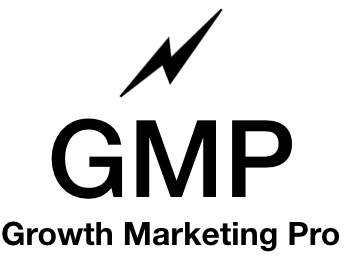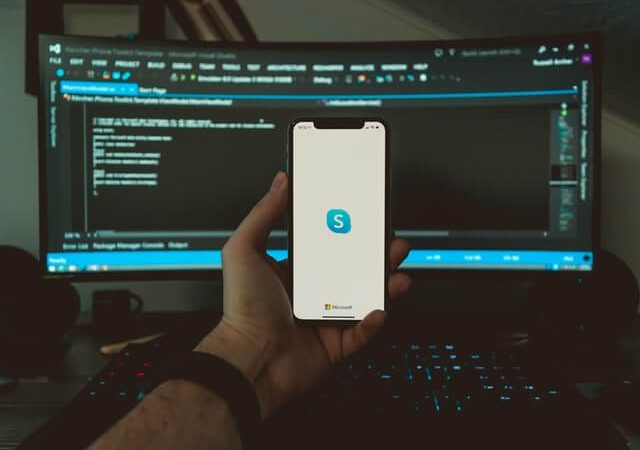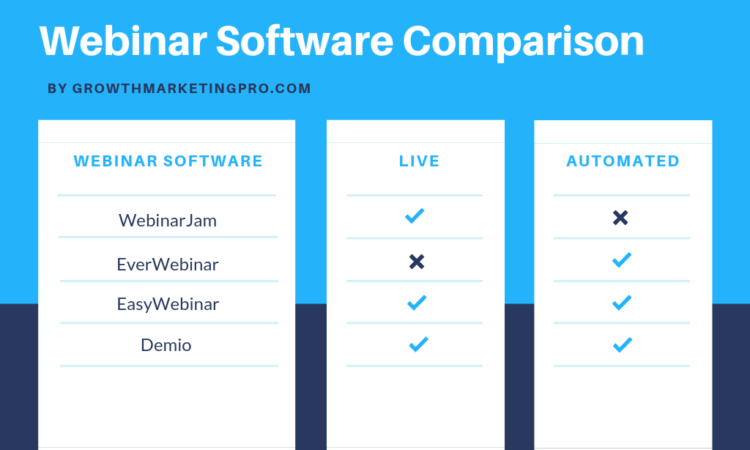- Packola vs Packlane vs PackM vs Arka [2024 Guide] - March 12, 2024
- 12 Best Companies for Custom Boxes and Packaging [2024] - February 12, 2024
- 24+ Best Webinar Software Platforms For Every Business in 2024 (Ranked & Reviewed) - November 11, 2023
The bane of your workday? Scheduling meetings.
After all the back and forth emails, you could be 30 emails deep before ever deciding on the perfect time to hop on a call. It’s a huge time suck for all team members involved.
But you can take charge of this situation with appointment scheduling software built to save you time and increase productivity.
One of the most popular options is Calendly. It boasts a lot of useful features and is affordable. But, what if you have a busy lifestyle and need a mobile-friendly solution?
With Calendly, you’re out of luck. But you’ve got options.
In this guide, we’ll discuss the five best Calendly alternatives for any business to improve productivity — so you can start taking time back for yourself.
Here’s a brief overview of the tools we’ll compare:
- HubSpot Meetings
- Calendar
- Meetingbird
- Doodle
- Acuity Scheduling
First, let’s dive into Calendly and whether it makes sense for your business.
Table of Contents
What is Calendly?
Calendly is a popular appointment scheduling app that has helped small teams and entrepreneurs manage their busy schedules since 2013. Its intuitive platform is designed to save you time, improve customer service, and increase sales.
To get started, all you have to do is let Calendly know your availability preferences. From there, you can share your scheduling link via email or embed it to your website, and watch the meetings flow into your calendar.
It integrates with Google Calendar, Outlook, Office 365, and iCloud, so you don’t have to worry about accidentally getting double-booked. You can also schedule group meetings, round-robin style appointments, and one-on-one sessions. Calendly even lets you customize your profile to deliver a personalized branding experience.
Arguably the most important feature that comes into play, however, is Calendly’s security. It never stores personally identifiable information, accesses your information, or reads your emails.
Despite being the most popular tool for appointment scheduling, Calendly isn’t a one-size-fits-all solution for you or your business.
To get a clearer picture, we put together the following pros and cons.
Calendly Pros
Here are the key advantages of using Calendly:
- Multiple meeting types: Calendly lets you schedule one-on-one, group, collective, and round-robin style meetings.
- Tool integrations: Integrate Calendly with tools like Zoom, HubSpot CRM, and Salesforce.
- Timezone detection: Your availability will display in your invitee’s timezone to avoid confusion and missed calls.
Calendly Cons
Calendly is a great software tool, but there are a few disadvantages to consider. Let’s take a look:
- Restrictive free plan: Calendly does offer a free version, but you can only connect to one calendar (with one meeting type), and you’re limited to email support.
- No mobile app: The software is not available on iOS or Android, which limits usability.
- Limited sales functionality: Calendly does not save customer data, so you won’t have access to any prospect information.
What are the Best Calendly Alternatives?
Calendly is a great tool to help maximize your time and efficiency, but it’s not all-inclusive. There are a variety of Calendly alternatives with similar features that work just as well — especially if you’re looking for more robust calendar scheduling options.
When deciding the best appointment scheduling software for you or your team, remember to keep these features in mind:
- Security
- Calendar integration types
- Ease-of-use
- Customizability
We sorted through all the scheduling tools and compiled the five best Calendly alternatives for easy comparison.
Here are the best options:
1. HubSpot Meetings
HubSpot Meetings is a free meeting and appointment scheduling software. It fully integrates with HubSpot’s free customer relationship management (CRM) tool, which means you’ll also have access to things like email marketing, live chats, and reports.
The meeting scheduler tool integrates with popular email providers and calendars and allows you to book unlimited appointments in seconds. You can also create a customizable link to reflect proper branding and embed it into your website — similar to Calendly.
Unlike Calendly, however, HubSpot Meetings is compatible with iOS and Android to work across devices.
If you’re already using HubSpot’s CRM, it automatically updates the platform with contacts and creates records when prospects book an appointment. This is especially useful for sales teams to streamline efficiency.
HubSpot Meetings Pros:
- Additional useful and complementary tools included with meeting scheduling
- Localized time zones and languages
- Multiple meeting types
HubSpot Meetings Cons:
- Higher learning curve
- More expensive paid versions
Best Calendly Alternative For: Sales teams, marketers, mid-sized businesses, current HubSpot clients.
Pricing: Free (Basic); $50 per month for the Starter tier; $500 a month for the Professional level; $1,200 per month for Enterprise.
2. Calendar
Calendar is powered by artificial intelligence (AI) and machine learning. It offers a virtual assistant that learns your schedule the more you use the platform.
Eventually, it can take over meeting scheduling and appointment changes while delivering an experience tailored to your distinct needs.
Like HubSpot Meetings, it’s available across devices for multi-platform viewing. It also brings together your Google and Outlook calendars into one dashboard to easily manage your full schedule.
Compared to Calendly, Calendar is more robust and offers two ways to book meetings:
- The first involves sending out a personalized link where invitees can view your availability and book from there.
- The second involves the host indicating availability, listing the people they’d like to attend, then using Calendar to send an email to collect preferred times. Once an ideal time to meet is confirmed, the appointment is scheduled for you.
If you’re looking for a budget-friendly option with powerful features, Calendar is the way to go. It has a free version with all the essentials, unlike Doodle, which offers only a free trial.
Calendar Pros:
- Robust free plan
- Two-factor authentication
- Meeting and people analytics
Calendar Cons:
- Limited app integrations
- Fewer scheduling features
- Steep learning curve
Best Calendly Alternative For: Startups, small businesses, freelancers, small teams, sales.
Pricing: Free (Basic Individual and Teams); $10 a month for Pro Individuals; $8 a month for Pro Teams.
3. Meetingbird
Meetingbird is an appointment scheduler that integrates with Google and Office 365. Similar to other Calendly alternatives, Meetingbird features automatic time-zone detection, group scheduling, and syncs to multiple calendars.
Like Doodle, Meetingbird has a polling feature and customized availability for attendees to book appointments with you.
Meetingbird also prevents last-minute bookings with its advanced notice and meeting buffer times. You can also integrate the software with popular apps, such as Zoom, Zapier, and Salesforce.
Compared to Calendly, Meetingbird focuses more heavily on integrating with Gmail. Its Chrome extension allows you to handle everything from inside your inbox.
On the downside, if you have any questions, you can only contact Meetingbird via email. It’s also less advanced than other Calendly alternatives mentioned in this list.
Meetingbird Pros:
- Group scheduling
- Popular app integrations
- Easy-to-use interface
Meetingbird Cons:
- Limited calendar integrations
- Doesn’t work well across browsers
- Support limited to email
Best Calendly Alternative For: Freelancers, individuals, marketers, small businesses.
Pricing: Free (Basic); $9 per month for the premium version.
4. Doodle
While most Calendly alternatives are solely business-focused, Doodle makes it easy to block off personal and professional time in one calendar.
How?
At its core, Doodle is a polling app.
You pick the date and time options, then crowd-source to find an appointment that works best with everyone’s schedules. Best of all, your invitees don’t have to create a Doodle account to participate in the poll.
Similar to other appointment scheduling products, Doodle also offers the option to send out a personalized link that attendees can use to request a meeting based on your availability.
It also integrates with popular email providers, as well as essential apps like Zoom, Slack, and Zapier.
Of all the platforms listed, Doodle is probably the most secure choice.
For added layers of protection, Doodle uses:
- Cloudflare for security against distributed denial of service (DDoS) attacks
- Hosting on Amazon Web Services (AWS) for international compliance
- Basic calendar integrations that never store personal data
Compared to Calendly and Calendar, Doodle’s free version is ad-heavy, and users have reported an overwhelming amount of sales emails encouraging upgrades.
Doodle Pros:
- Secure platform
- Popular app integrations
- Mobile-friendly
Doodle Cons:
- Ad-supported free version
- Hard to manage
- No advanced capabilities
Best Calendly Alternative For: Enterprise, individuals, freelancers, non-profits, marketers.
Pricing: Free (Basic); Starter tier is $4.49 per month (billed annually); Pro is $5.99 a month (billed annually); Team is $30 per month (billed annually); Enterprise is unlisted.
5. Acuity Scheduling
Acuity Scheduling is like the Squarespace of Calendly alternatives. It’s simple to use and has a sleek interface.
Compared to Calendly, Acuity Scheduling features more advanced capabilities.
You can set up available hours even if they change by day or week. Additionally, you can implement endless custom integrations through its application programming interface (API). This online appointment tool also sends email reminders to help prevent no-shows.
Acuity Scheduling is also Health Insurance Portability and Accountability Act (HIPAA) compliant, making it ideal for healthcare teams.
In addition to being an appointment management tool, Acuity Scheduling allows you to accept payments with Stripe, Paypal, or Square. You can even offer group classes, subscriptions, and gift certificates all in one platform.
Unlike Doodle or HubSpot Meetings, you can embed your custom link into your social media profiles, as well as your website.
There is a free version available, but it’s restrictive to the point of almost no real usability.
Acuity Scheduling Pros:
- HIPPA compliant
- Lots of available integrations
- Social and website embedding
Acuity Scheduling Cons:
- Restrictive free plan
- Steep learning curve
- More expensive than other options
Best Calendly Alternative For: Healthcare, sales teams, marketers, large teams, fitness.
Pricing: Free (Basic); $15 a month for individuals; $25 a month for small teams; $50 a month for the Powerhouse tier.
Final Thoughts: The 5 Best Calendly Alternatives You Should Be Using in 2020
You don’t have to waste your day scheduling meetings. There are plenty of appointment scheduling tools to help streamline productivity.
While Calendly works well for some businesses, it’s essential to consider the features that best suit your needs.
Whether you’re looking to improve sales, merge your personal and business availability, or save time — there’s an alternative to Calendly for you.
In search of an intuitive solution for your sales and marketing team? Get started with a free suite of marketing tools, including meeting scheduling for your business.




